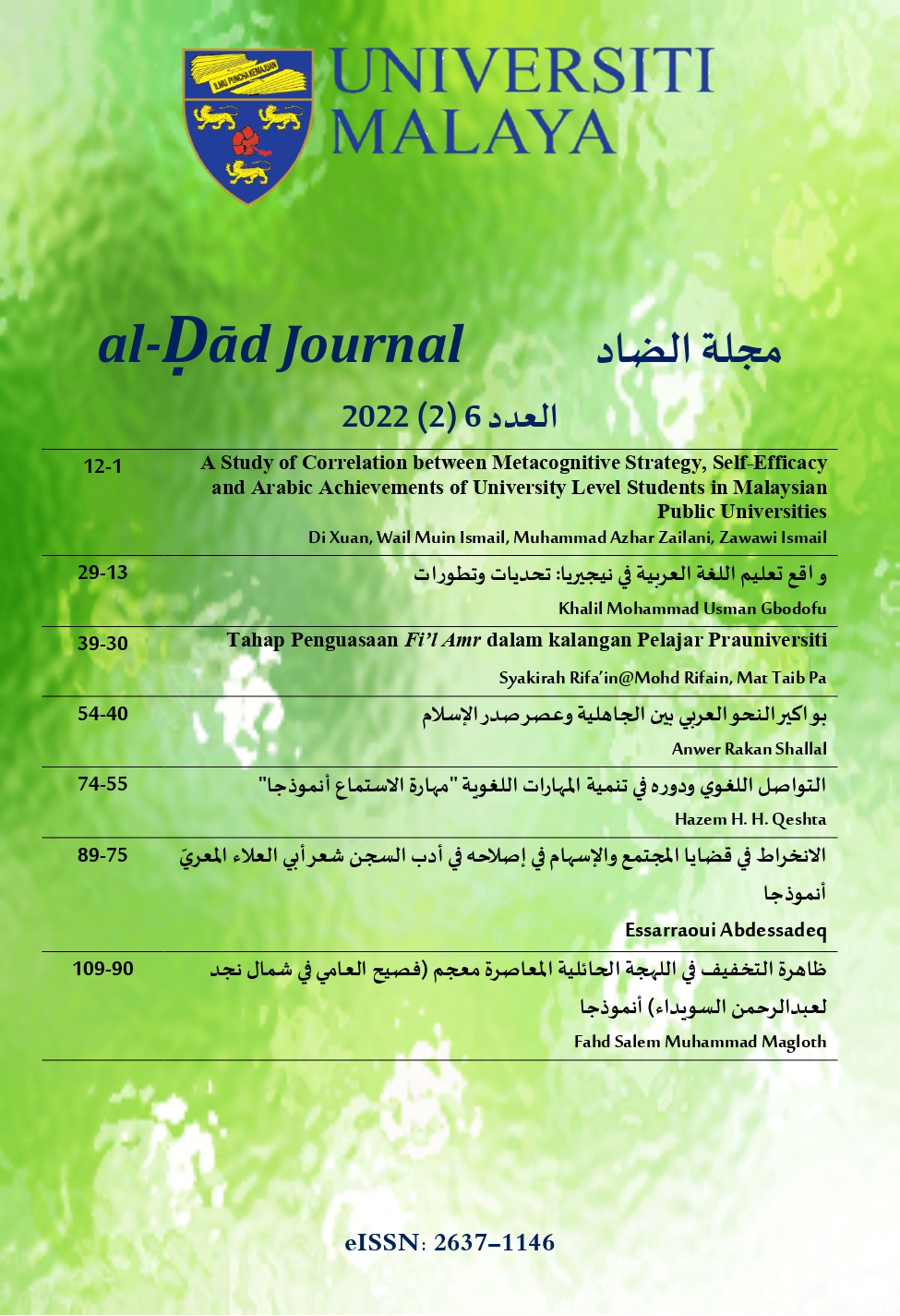A Study of Correlation between Metacognitive Strategy, Self-Efficacy and Arabic Achievements of University Level Students in Malaysian Public Universities SECOND LANGUAGE ACQUISITION
Main Article Content
Abstract
This study investigated the correlation of metacognitive strategies, self-efficacy and academic performance of university-level Arabic learners. A total of 317 university level Arabic learners from Year 1 to Year 4 participated in this study. The quantitative research approach was utilised by using Motivated Strategies for Learning Questionnaire (MSLQ) and the Self-Regulated Online Learning Questionnaire (SOL-Q) as instrument of the study. SPSS analysis of the data indicated a high level of metacognitive skills and self-efficacy. Metacognitive skills and self-efficacy correlated with each other significantly predicted academic performance. Subsequent data analysis also yielded a significant difference in metacognitive strategies and self-efficacy beliefs among Year 1, Year 2, Year 3, and Year 4 learners. The implications of the results for language learning and educational practice are discussed.
Keywords: Metacognitive strategies, Self-efficacy, Academic achievement, Second language acquisition, Arabic language Education
